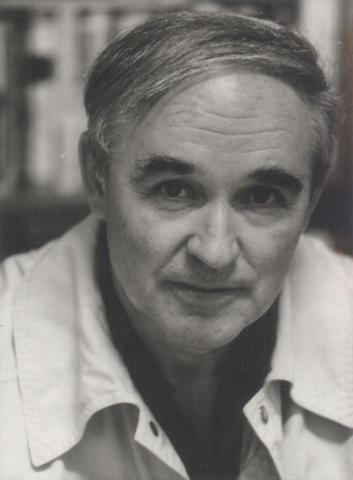Fekete Sándor: Biography
Sándor Fekete (Miskolc, 11 February 1927 – Budapest, 11 June 2001)
Attila József Prize-winning writer, journalist, literary historian. Member of the Digital Literature Academy from 1998 until his death.
*
Born on 11 February 1927 in Miskolc. He graduated from the Fráter György High School in Miskolc. From the autumn of 1945 he studied Hungarian and Italian at Pázmány Péter University in Budapest. From 1949 he was secretary of the Vasvár Academy, and taught at the College of Special Education and the Petőfi Academy of Education. Between 1949 and 1951, he was a student at the two-year Party College. From 1951 he was a journalist for Szabad Nép, and from 1952 he was one of the editors of the journal Új Hang. He became a member of the group surrounding the politician Imre Nagy, who later became Prime Minister during the 1956 Revolution.
After 1956, he analysed the revolution in his pamphlet Hungaricus, ‘the instructive story of the crushing of a historical hope’. In 1958 he was arrested and sentenced to nine years in prison for writing and leading an illegal organization. He was released in the spring of 1963 as part of the general amnesty.
Between 1963 and 1975, he was a staff member of the Institute of Literature of the Hungarian Academy of Sciences. During these years he published his seminal works on Petőfi studies, as well as popular, informative works on the great figures of the reform era, Széchenyi, Kossuth, and the great French Revolution.
In 1976 he founded the cultural weekly Új Tükör with László Benjámin and Imre Csanádi. He was deputy editor-in-chief and then editor-in-chief from 1986 until its closure in 1990. The Új Tükör published almost all the major figures of Hungarian literature, from Gyula Illyés to Sándor Csoóri and György Konrád, as well as Hungarian authors living in abroad.
It is to his personal credit that in the chaos of the regime change he managed to prevent a tragicomical event: the skeleton of a woman found in a Barguzin grave being re-buried with pomp and circumstance as the great Hungarian poet, Sándor Petőfi.
In 1990, he stood as a non-party candidate for the Socialist Party, which was certain to lose at that time. He retired the same year and continued his research on Petőfi. In the 1990s, he self-published six books. Half of them are about Petőfi, the other half are autobiographical. In 1998, on the 150th anniversary of the Revolution and War of Independence, he published a summary of his work, Petőfi’s Revolution.
In the 1990s, he was president of the Vasvári Pál Society, then of the Petőfi Sándor Society, and vice-president of the Association of Hungarian Resistance and Anti-Fascist Societies.
After a long and serious illness, he died in Budapest on 11 June 2001.
This biography was written by Sándor Köröspataki Kiss, translated by Benedek Totth and Austin Wagner.

